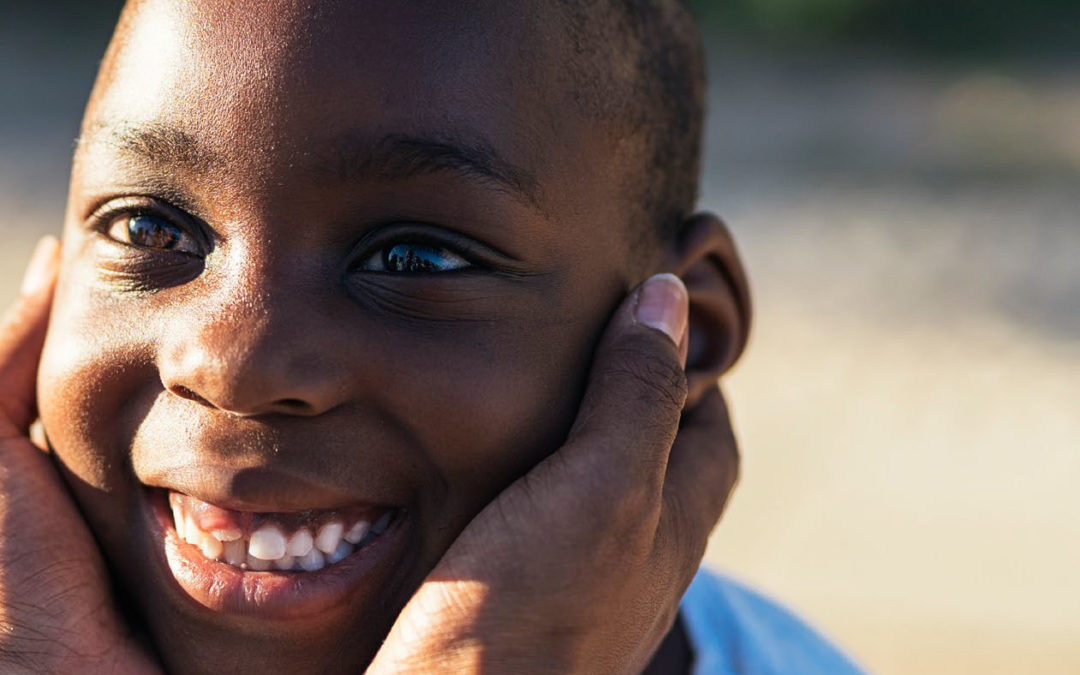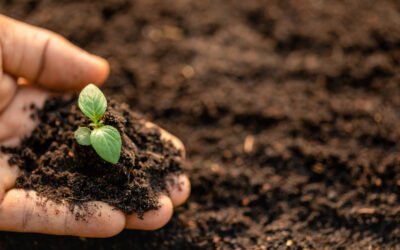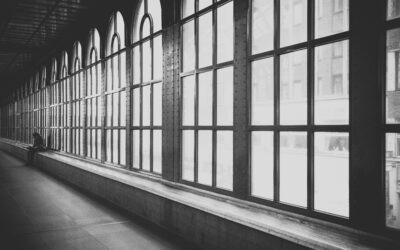by Jordan Miller-Stubbendick—
“Remember who you are and whose you are,” my mother would often tell me. When I left the house to go to school or to a sleepover, she embraced me with her arms and her words. Sometimes I squirmed against it, as kids do. “Okay, Mom. I know,” I’d say. “I need to go now.”
Other times, though, I looked into her eyes and knew the deep love and faith contained within those words. Giving me this kind of blessing was one of many ways that my mom entrusted me to God’s care when she couldn’t physically be with me. As a child, I didn’t understand why this mattered so much. Now, as a parent myself, I know more about the tender process of allowing my child to walk into a space where I cannot follow. Before letting go, I just want to wrap them in my love and in God’s love.
“Remember who you are and whose you are,” became a routine and a ritual whenever my mother and I left each other’s presence. Routines help us order our days, weeks and years. Routines can include brushing our teeth after breakfast every morning, planning out meals for the week each Sunday or celebrating our birthdays with the same kind of cake each year. We all engage in routines. But not every routine is a ritual.
CHRONOS VS. KAIROS
Like routines, rituals happen over and over again. Routines keep us grounded and productive. Rituals keep us connected and centered. Rituals engage our bodies so our minds and hearts can open up to something beyond the mundane everyday tasks of doing the dishes, paying the bills and figuring out what to have for dinner. Rituals don’t need to be elaborate. They do need a quality of attention and an openness to the sacred. A ritual can be as simple as taking your favorite mug out of the kitchen cupboard to enjoy a cup of tea. A ritual can be as elaborate as planning a wedding.
In the Greek language, there are two types of time—chronos time and kairos time. Chronos is the time of clocks and calendars and to-do lists. Kairos is the time of laughing so hard that you can’t catch your breath, of taking a nap under a cozy fleece blanket and of scanning the sky for the first star of the evening. Chronos time is measured by the clock, but kairos time is God’s time. Routines help us to order chronos time. Rituals help us to shift into kairos time.
I must have heard those words, “Remember who you are and whose you are,” hundreds of times throughout my childhood. When I think of them now, they ground me in my mother’s love and in the faith she helped nurture in me from the very beginning. While Mom began this practice as a ritual for us to share, I now realize that these words are also the core definition of what ritual is. Ritual is there to remind us of who we are, of what matters to us and of the God who lovingly made us.
RITUALS IN THE FAMILY OF GOD
Many different rituals mark the church year. We light candles in worship as we call to mind that Jesus, the Light of the World, is present with us. In baptism, water and God’s presence move aside worries and struggles, connecting us to our true identity as beloved children of God. During communion we’re reminded, as we chew the bread and swallow the wine or juice, that Jesus wraps us, as well as people of all times and places, in life-giving love.
Rituals are not dependent on how we feel or what we believe, at any given moment. They hold a power of their own—a power to move us beyond our everyday thoughts and concerns, a power to connect us with greater love and meaning. The liturgy that many of us sing, pray and enact week after week, is one example. Doing the same thing over and over allows the story of faith to seep into our beings, etching our ancestors’ songs of faith and God’s promises of love into our thirsty hearts.
This gives us a chance to remember these songs and promises when we need them. The ritual of our liturgy is an especially powerful way to remember who we are and whose we are. It can move us out of the realm of everyday concerns into a kairos moment. Sometimes all we need is that moment.
WHAT ABOUT THIS MOMENT?
Life right now feels like it is lived moment to moment. As I write this, COVID-19 continues to keep so many of us close to home, washing our hands and praying for all those around the world who are affected by this virus.
My husband, Adam, and I have been working from home with our two young sons as we all navigate the unprecedented reality of a global pandemic. These days, ritual tastes like brown sugar and chocolate chips stirred into batter as I bake muffins with my older son, who asks, “Mama, can I have a lick?”
Ritual smells like going outside on a spring day to see if the daffodils and hyacinths have fully bloomed. It sounds like FaceTime calls with friends and family near and far, and like Adam and me recording weekly worship services that we post online to help connect our congregations to the God who shepherds us all. We are uncertain about what the future will look like, even by the end of summer, when this essay is published. Will people in our part of the U.S. then be back to gathering in worship for the weekly liturgy? There is no way to know. What I do know is true is that
God is here, and God will take us into the future. Now more than ever, we can remember who we are and whose we are, whatever these days bring for us. The words of the liturgy and other rituals help ground us in these truths when we most need to hear them. In uncertain days, we need frequent reminders that God loves us and we are still becoming the people whom God has created us to be—people who seek to care for neighbors near and far, those whom we love and know well, and those whom we have never met.
So now it’s your turn: What rituals help to move you from chronos time to kairos time? What words, sounds, tastes or smells wrap your soul in God’s tender love as you go out into the world to do what you need to do? Whatever those rituals are, they matter now more than ever because they help you remember who you are and whose you are.
You are a beloved child of God. You are held in love forever. This is true whether you are navigating a global pandemic or not. This is true and worth repeating over and over, all the days of your life.
The Rev. Jordan Miller-Stubbendick serves as pastor of St. Paul Evangelical Lutheran Church in Niagara Falls, New York. She lives with her husband, Adam, their two sons, and their dog.
This article is from the September 2020 issue of Gather magazine. To read more like it, subscribe to Gather.
Nothing can separate us
Holy and abiding presence, out of the depths, I cry to you! Like so many before me, I wonder: “How...
Grow in faith
Explore Women of the ELCA resources Women of the ELCA offers a wide range of free downloadable...
Listening to loneliness
I didn’t grow up deprived of opportunities to make friends. I had a loving family. I enjoyed...





